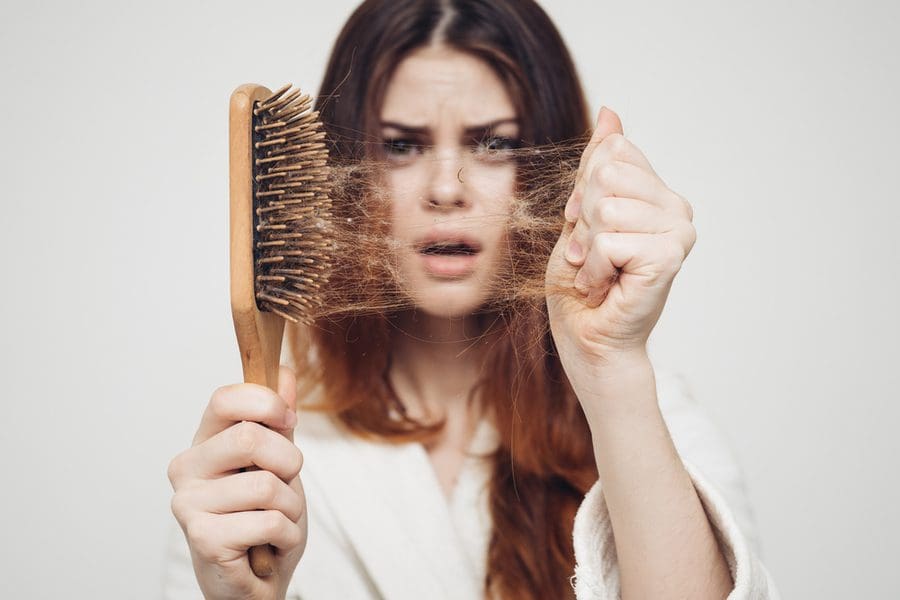Doctors blame the coronavirus pandemic for a significant increase in the number of patients they’re seeing with hair loss. It’s not just people battling Covid-19 who are shedding hair at a rapid rate. Emotional stress—missing paychecks, schooling at home, losing family and friends—triggers hair loss among people who have never had the virus. If you’re losing more hair than you should, talk to a family doctor or dermatologist about your symptoms and the health conditions that can cause hair loss.
Two types of hair loss are linked to the pandemic, according to doctors. One condition is called telogen effluvium, which typically starts several months after a physically or emotionally stressful experience. After pregnancy, some women may see this type of hair loss lasting about six months. The second hair loss condition seeing a rise in cases is alopecia areata. This condition occurs when the immune system attacks hair follicles, often resulting from psychological stress. Some alopecia areata cases are helped by steroid injections and resolve without treatment. These cases can become permanent, however, if not treated early.
If you notice that your hair is thinning, you might be feeling like you want to try hair care methods that make you feel better about how you look. Some techniques that can help boost your spirits include styling products that add volume, hairstyles that make a widening part less noticeable, and wigs or extensions.
Here are some effective treatments that can stop hair loss and spur new growth.
Stress-reduction techniques
Hair loss caused by stressful events or hormonal changes, like pregnancy or a global pandemic, tends to stop after the body adjusts and may not require treatment. Stress-reduction techniques such as yoga, scalp massage, or mindfulness meditation may help relieve anxiety and speed up the return to normal hair growth.
While some doctors recommend psychotherapy for people depressed or traumatized by hair loss, they warn that some antidepressants and anti-anxiety medications can increase hair loss.
Healthy nutrition
Eating a healthy diet addresses hair loss caused by nutrient deficiencies. Vitamins like biotin and folic acid may help encourage hair growth. You shouldn’t need medical treatment beyond supplements unless your nutritional deficiency is caused by an underlying health condition, which should be treated directly.
Minoxidil
An over-the-counter hair-growth drug, Minoxidil may prevent further hair loss and improve hair density. You’ll take Minoxidil for 6 to 12 months at the minimum. It typically takes 3 months to begin seeing results and a few more months to determine whether the drug is effective for you. Apply the product at bedtime to wet hair and wash it out in the morning. Doctors warn minoxidil can initially cause more hair loss before it starts working.
Corticosteroids
Treatment for hair loss caused by alopecia areata can include corticosteroids injected in the affected area. Treatment can be repeated every four to six weeks. You may see results in as quickly as four weeks. Doctors warn side effects with injections may include skin atrophy or a thinning scalp.






